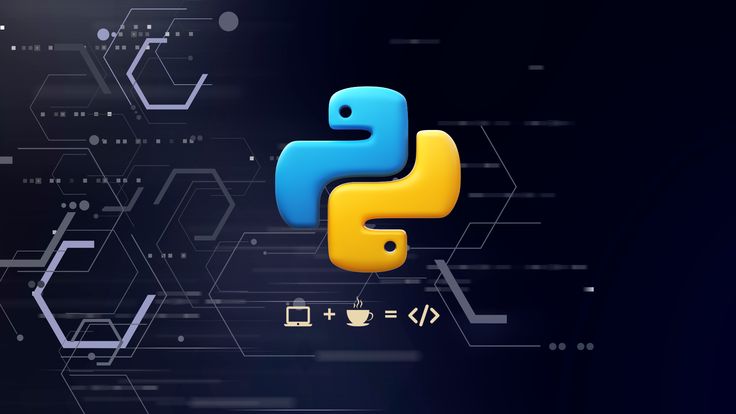Programming languages are the tools of the trade for software developers, each with its unique features, strengths, and weaknesses. Among the most prominent and widely-used languages are C++ and Python. Both have carved out significant niches in the software development world, but they cater to different needs and use cases. This article delves into a comprehensive comparison of C++ and Python, exploring their syntax, performance, use cases, and more.
Ease of Learning
C++
C++ is a statically typed, compiled language known for its performance and control over system resources. Its syntax is complex and often requires a deeper understanding of computer science concepts. C++ inherits the syntax from its predecessor, C, but adds object-oriented features, among others.
C++ code can be verbose, and managing memory manually using pointers and dynamic allocation adds to the complexity. This steep learning curve makes C++ more challenging for beginners.
Python
Python, on the other hand, is an interpreted, dynamically typed language known for its simplicity and readability. It has a more straightforward syntax, which makes it an excellent choice for beginners.Python code is concise and easier to read, often described as executable pseudocode. Its simplicity reduces the learning curve significantly, making it a popular choice for new programmers.
Performance
C++
C++ excels in performance due to its close-to-hardware nature and efficient memory management. It compiles directly to machine code, which the CPU can execute without an intermediary. This makes C++ a go-to choice for performance-critical applications like game development, real-time systems, and high-frequency trading platforms.
Python
Python is an interpreted language, which means it executes code line-by-line at runtime. This results in slower execution compared to compiled languages like C++. However, Python’s performance can be bolstered through implementations like PyPy or by integrating with C/C++ modules using libraries such as Cython or ctypes. Despite these optimizations, Python is generally not the best choice for applications where performance is paramount.
Use Cases
C++
C++ is widely used in areas where performance and resource management are crucial. Some of the key domains include:
Game Development: C++ is the backbone of many game engines like Unreal Engine, offering high performance and fine-grained control over system resources.
System Programming: Operating systems, device drivers, and embedded systems often use C++ due to its ability to interact directly with hardware.
Real-Time Systems: Industries requiring real-time processing, such as aerospace and finance, rely on C++ for its predictability and efficiency.
Python
Python’s versatility and ease of use make it suitable for a broad range of applications, including:
Web Development: Frameworks like Django and Flask have made Python a popular choice for web applications.
Data Science and Machine Learning: Libraries such as NumPy, pandas, and TensorFlow have positioned Python as the leading language for data analysis and AI research.
Automation and Scripting: Python’s simplicity makes it ideal for writing scripts to automate repetitive tasks.
Education: Due to its readable syntax, Python is often used as the introductory language in computer science courses.
Ecosystem and Libraries
C++
C++ boasts a mature ecosystem with a plethora of libraries and frameworks. The Standard Template Library (STL) provides a wide array of data structures and algorithms. Additionally, libraries like Boost offer extensive functionality for various applications. However, integrating third-party libraries in C++ can be challenging due to dependency management and compatibility issues.
Python
Python’s ecosystem is one of its biggest strengths. The Python Package Index (PyPI) hosts over 300,000 packages, covering almost every conceivable need. Whether you need web frameworks, data analysis tools, or machine learning libraries, Python’s rich ecosystem has you covered. The ease of installing and managing packages with tools like pip further enhances its appeal.
Memory Management
C++
C++ requires developers to manage memory manually. This involves allocating and deallocating memory using new and delete operators. While this gives developers fine-grained control, it also introduces risks such as memory leaks and segmentation faults if not handled correctly. Modern C++ standards (C++11 and later) have introduced smart pointers (e.g., std::unique_ptr and std::shared_ptr) to alleviate some of these issues.
Python
Python uses automatic memory management with garbage collection, which simplifies development by reducing the burden of manual memory management. The garbage collector in Python automatically reclaims memory by cleaning up objects that are no longer in use. This feature, while reducing the risk of memory leaks, can occasionally lead to performance overhead.
Community and Support
C++
C++ has a long-standing, vibrant community with extensive documentation and support. Forums like Stack Overflow and communities such as the ISO C++ group provide valuable resources and assistance. However, the complexity of the language can sometimes make it harder to find beginner-friendly support.
Python
Python’s community is renowned for its inclusivity and support, especially for beginners. The language’s popularity has fostered a vast array of tutorials, courses, and forums dedicated to helping new developers. Websites like Real Python and communities such as the Python Software Foundation are excellent resources for learning and troubleshooting.
Conclusion
C++ and Python serve different purposes and excel in different areas. C++ is the choice for performance-critical, system-level programming, offering control and efficiency at the cost of complexity. Python, with its simplicity and extensive libraries, is ideal for rapid development, scripting, and areas like web development and data science.
Choosing between C++ and Python depends on the specific requirements of your project. If you need high performance and control over system resources, C++ is the way to go. For ease of use, rapid development, and versatility, Python is a strong contender. Understanding the strengths and weaknesses of each language will help you make an informed decision tailored to your programming needs.
